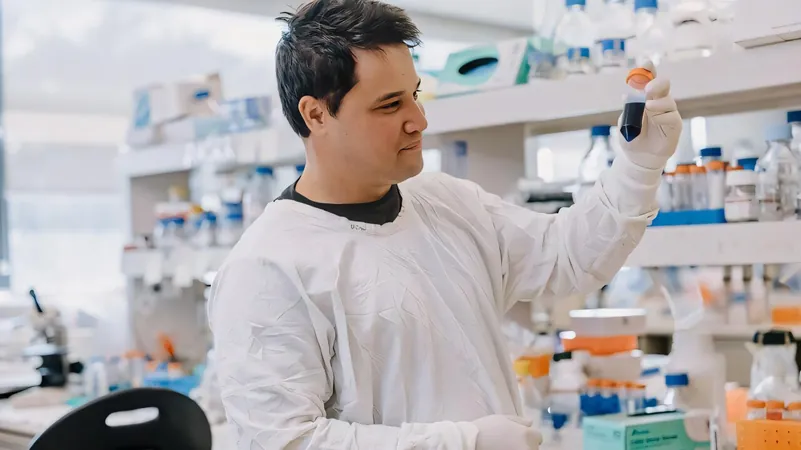
A Breakthrough Trio: Hope for Families Battling Genetic Motor Neuron Disease
2025-04-14
Author: Li
Groundbreaking Discovery from UOW Researchers
Researchers at the University of Wollongong (UOW) have unveiled a remarkable trio of medications that could revolutionize treatment for hereditary motor neuron disease (MND) linked to SOD1 gene mutations.
Research Inspired by a Legacy
Published in the esteemed journal eBioMedicine, the findings build on the legacy of the late Professor Justin Yerbury, who succumbed to MND in 2023. His team explored how a unique combination of three drugs could effectively target the harmful SOD1 protein responsible for the disease.
The Genetic Link
While most MND cases arise sporadically, approximately 5% to 10% are genetic, with SOD1 mutations being a significant factor. This antioxidant enzyme is crucial for shielding cells from detrimental superoxide radicals, and nearly 35% of those with inherited MND in Australia bear mutations in the SOD1 gene.
Innovative Drug Approach
Led by Dr. Jeremy Lum, the research team took a novel approach by combining multiple drugs at lower doses, aiming to repair damaged SOD1 proteins, prevent toxic clumping, and safeguard motor neurons from death. "We discovered that this combination was far more effective than any single drug alone," Dr. Lum remarked.
Understanding the Genetic Challenge
With over 150 different mutations in the SOD1 gene altering its structure, the research highlights how these mutations lead to clumping that can be lethal for motor neurons. Professor Yerbury had previously focused on unraveling the complex nature of SOD1 mutations, seeking paths to delay disease progression.
A Personal Connection to the Research
Professor Yerbury endured the personal tragedy of losing multiple family members, including his mother and grandmother, to MND. His profound connection to the disease fueled his resolve to make a difference, and his legacy continues to inspire current researchers.
A Collaborative Effort
The research involved collaboration between several experts from UOW and the University of Melbourne, including Dr. Rachael Bartlett and Professor Anthony Dosseto, among others. Their combined expertise showcases the dedication to advancing MND research.
Looking to the Future
Dr. Lum expressed pride in furthering Professor Yerbury's vision. "MND is a complex disease, and we believe a multifaceted approach could offer better prospects than a single treatment. Our dedication to improving MND outcomes remains steadfast, inspired by the work of our mentor, Justin."


 Brasil (PT)
Brasil (PT)
 Canada (EN)
Canada (EN)
 Chile (ES)
Chile (ES)
 Česko (CS)
Česko (CS)
 대한민국 (KO)
대한민국 (KO)
 España (ES)
España (ES)
 France (FR)
France (FR)
 Hong Kong (EN)
Hong Kong (EN)
 Italia (IT)
Italia (IT)
 日本 (JA)
日本 (JA)
 Magyarország (HU)
Magyarország (HU)
 Norge (NO)
Norge (NO)
 Polska (PL)
Polska (PL)
 Schweiz (DE)
Schweiz (DE)
 Singapore (EN)
Singapore (EN)
 Sverige (SV)
Sverige (SV)
 Suomi (FI)
Suomi (FI)
 Türkiye (TR)
Türkiye (TR)
 الإمارات العربية المتحدة (AR)
الإمارات العربية المتحدة (AR)